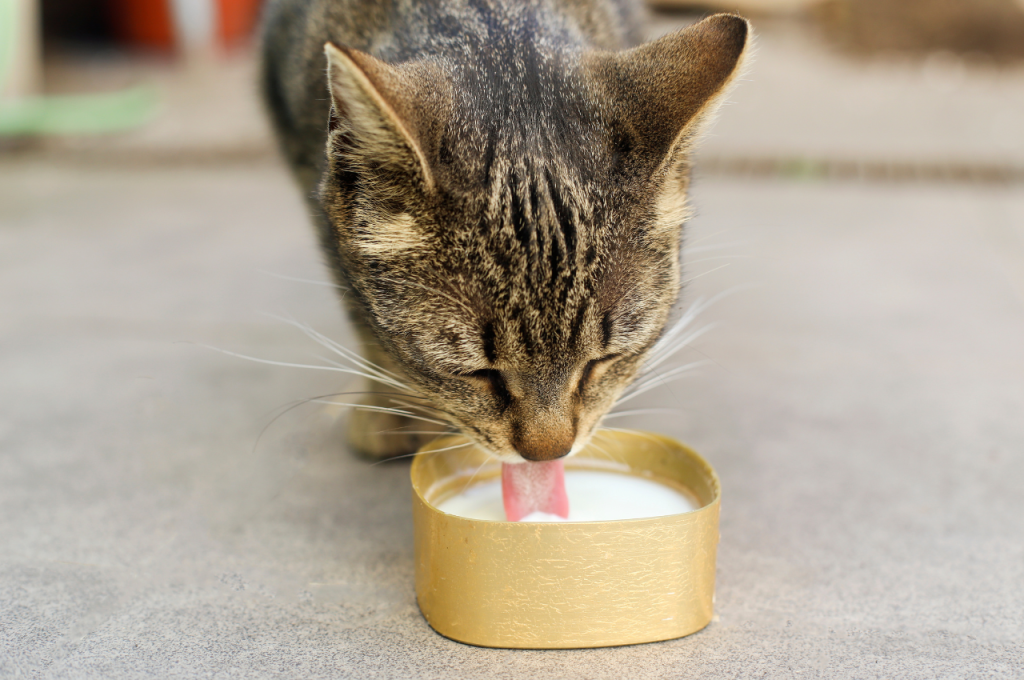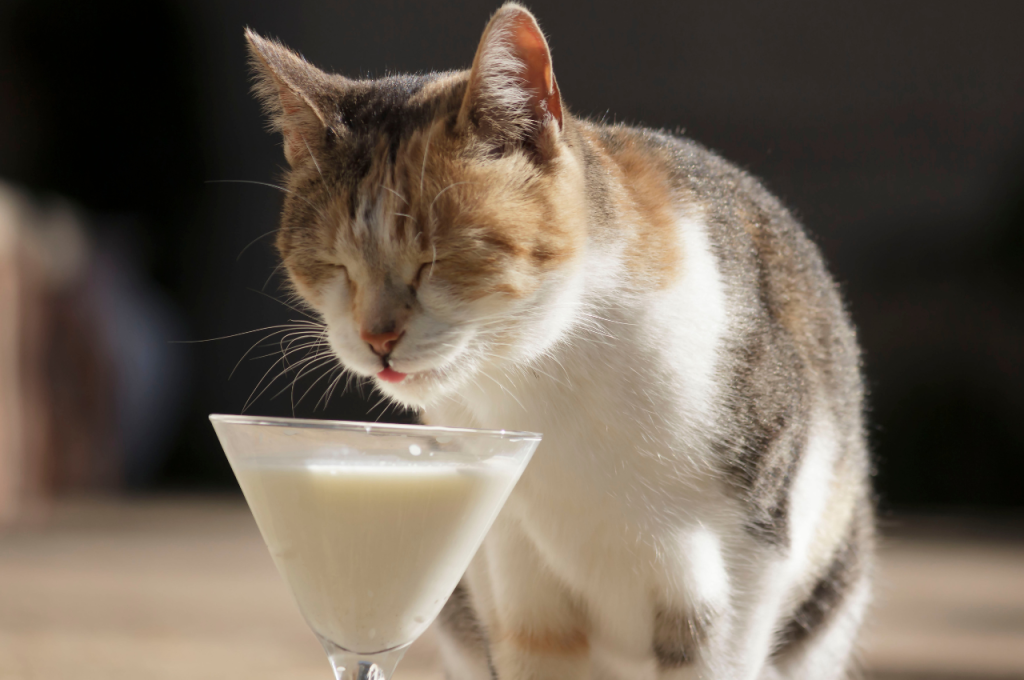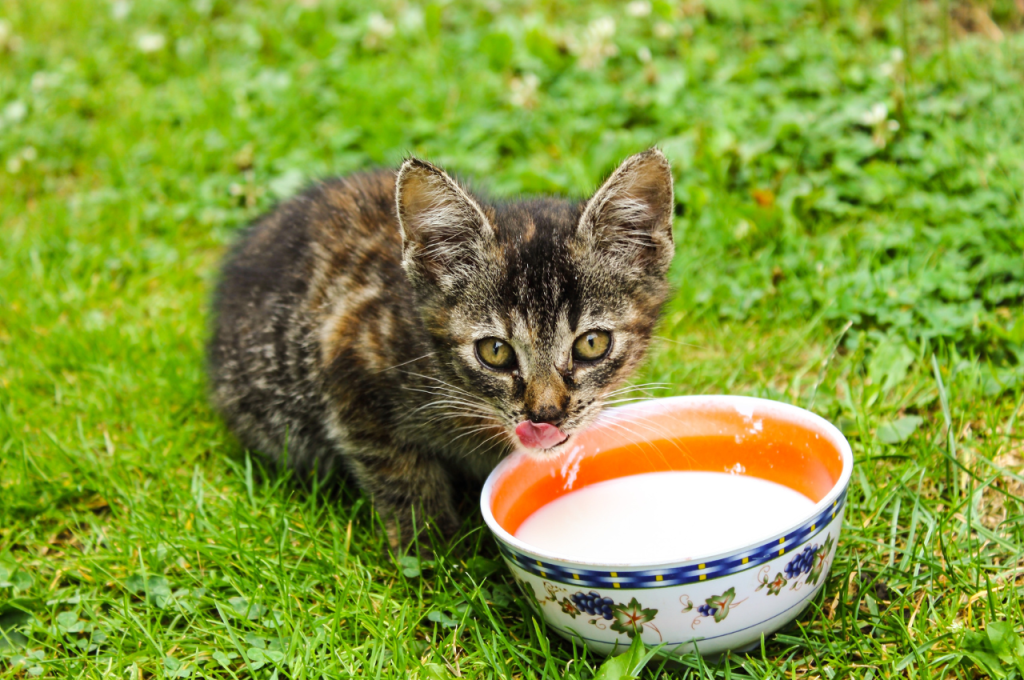Cats should not drink milk because many cats are lactose intolerant and it can cause digestive issues. Cats are often associated with the image of drinking milk, but is it safe for them?
While you may have seen cats lapping up a saucer of milk in cartoons, the reality is that cats should not drink milk. Surprisingly, many cats are lactose intolerant, meaning they lack the enzyme required to break down lactose, the sugar found in milk.
When cats consume milk, it can lead to digestive upset such as bloating, diarrhea, and abdominal pain. This makes it important for cat owners to provide their furry friends with suitable alternatives like water or specially formulated cat milk. Understanding the facts about cats and milk can help ensure your feline companion stays healthy and avoids unnecessary discomfort.
The Myth of Cats and Milk
Many people have grown up with the idea that cats and milk go hand in hand. It’s a common image to see a little kitten happily lapping up a bowl of milk. But is this a healthy habit for cats? Let’s separate fact from fiction and explore the truth behind the myth of cats and milk.

Why Do We Think Cats Drink Milk?
Our perception of cats and milk traces back to popular culture, where it’s often depicted as an ideal treat for feline companions. Additionally, people may offer milk to cats because it’s seen as a way of providing hydration or indulging them. However, it’s important to shed light on the reality of this situation.
Can Cats Digest Lactose?
Cats are born with the ability to digest lactose, the sugar found in milk, thanks to the presence of an enzyme called lactase. This enzyme helps break down lactose into more easily digestible components. However, as cats grow older, their production of lactase decreases, leading to difficulty digesting lactose.
The Dangers of Giving Cats Milk
While it may seem harmless to offer milk to your cat, it can have negative effects on their health. The inability to digest lactose can cause gastrointestinal issues such as diarrhea, bloating, and gas. Excessive milk consumption can also lead to weight gain and nutritional imbalances, as milk lacks the essential nutrients required by cats.
Moreover, some cats may be lactose intolerant from a young age, making them highly sensitive to lactose even in small amounts. It’s crucial to note that milk should never replace a proper diet formulated specifically for cats.
So, while the image of a cat drinking milk may seem charming, it’s essential to understand that the reality is far from ideal. Offering your feline friend water and a well-balanced diet designed to meet their specific nutritional needs is the best way to keep them healthy and happy.
Understanding A Cat’s Nutritional Needs
Cats have specific nutritional requirements that must be met to ensure their overall health and well-being. Understanding what cats should drink and consume is crucial in providing optimal care for your feline friend.
What Should Cats Drink?
Cats should primarily drink water to stay hydrated. While many people think cats love milk, it’s not an ideal beverage for most cats as many are lactose intolerant. Water is the best option to keep your cat hydrated and healthy.
The Importance of Water for Cats
Water is essential for maintaining a cat’s proper bodily functions, including regulating body temperature and aiding in digestion. Always make sure your cat has access to fresh, clean water at all times.
Balanced Diet for Cats
- Provide high-quality cat food that meets their nutritional requirements.
- Include protein-rich ingredients in their diet to support muscle growth and maintenance.
- Offer healthy treats in moderation to add variety to their diet.
Ensuring your cat receives a well-balanced diet that includes the right mix of proteins, carbohydrates, fats, vitamins, and minerals is essential for their overall health and longevity.
Alternatives to Milk for Cats
When it comes to giving your cat a drink, it’s important to consider milk alternatives. While cats are known for their love of milk, many adult cats are lactose intolerant and can experience digestive issues if they consume dairy products. Fortunately, there are plenty of milk replacements for cats that are both safe and enjoyable for our feline friends.

Milk Replacements for Cats
If you’re looking for a dairy-free alternative to milk, consider offering your cat lactose-free milk or specialized cat milk. These products are formulated to be easier on your cat’s digestive system while still providing the creamy texture and taste cats love. Always ensure that the milk replacement is specifically designed for cats to avoid any potential health issues.
Feline-friendly Beverages
In addition to milk replacements, there are several feline-friendly beverages that you can introduce to your cat. Water should always be available to your cat, as staying hydrated is essential for their overall health. You can also offer your cat bone broth, which provides hydration and essential nutrients. Another option is catnip-infused water, which can offer a refreshing and enticing drink for your cat.
How to Introduce New Drinks to Your Cat
- Gradual Introduction: When introducing a new beverage, start by offering small amounts and gradually increasing the serving size over time. This allows your cat to adjust to the new drink without overwhelming their system.
- Observation: Pay close attention to your cat’s reaction to the new drink. If they show signs of disinterest or discomfort, it may be best to try a different beverage.
- Hydration Importance: Always prioritize water intake for your cat. While offering alternative beverages can add variety, water should remain the primary source of hydration.
Signs of Milk Allergy or Intolerance
When cats drink milk, it’s important to be aware of their potential sensitivity to lactose. Milk allergies and lactose intolerance are common issues in cats that can lead to discomfort and health problems. Keep an eye out for these signs to determine if your feline friend may be experiencing a milk allergy or intolerance.
Common Symptoms of Milk Allergy
If your cat is allergic to milk, you may observe symptoms such as vomiting, diarrhea, skin rashes, or itching. These allergic reactions can occur shortly after the ingestion of milk, indicating a negative response to the presence of certain proteins in the milk.
Lactose Intolerance in Cats
Cats, like some humans, can be lactose intolerant. The inability to fully digest lactose in milk can result in symptoms like abdominal pain, gas, diarrhea, and bloated stomach. Even small amounts of milk can trigger these uncomfortable reactions, making it essential to monitor your cat’s tolerance to dairy products.
How to Address Milk Allergy or Intolerance
- Consult with a veterinarian to confirm the presence of a milk allergy or lactose intolerance in your cat.
- Avoid giving your cat milk or dairy products and provide specialized cat-friendly alternatives instead.
- Consider lactose-free milk or cat-specific milk replacers as a substitute for regular milk, if necessary.
- Monitor your cat’s diet closely and observe any changes in their behavior or health after making adjustments.
- Utilize dairy-free treats to avoid triggering allergic reactions or digestive discomfort in sensitive cats.
When to Consult A Veterinarian
Cats should not drink milk as most adult cats are lactose intolerant. If you notice any digestive issues or discomfort after your cat has consumed milk, it’s best to consult a veterinarian.
When to Consult a Veterinarian:
Seeking Professional Advice
If your cat experiences any digestive issues, consult a veterinarian immediately.
Specific Cases Where Dairy Products May Be Appropriate
In specific cases, like lactose-tolerant cats, dairy products can be given under vet advice.
Understanding Your Cat’s Individual Needs
Cats have different nutrition requirements, so monitor your pet’s reaction to milk consumption. Keep an eye on any unusual signs or symptoms, and ensure the health of your furry companion.

Conclusion
After all, moderation is key when offering milk to your feline friend. Keep in mind that not all cats can tolerate lactose well. Observing your cat’s reaction can help determine if milk is a safe occasional treat.
Remember, water remains the best choice for a cat’s hydration needs.
